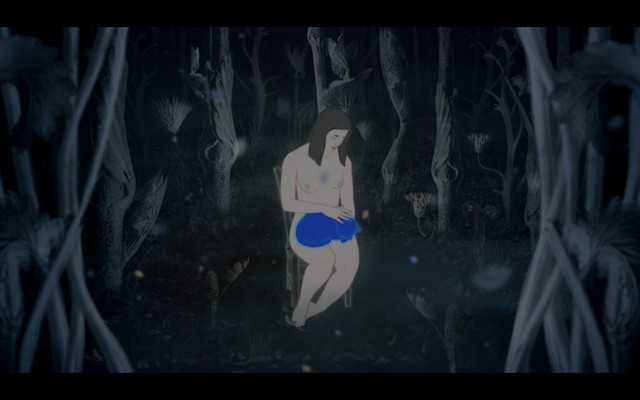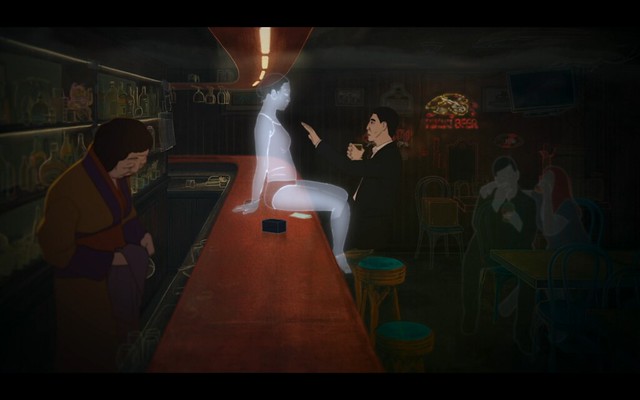






 Based on several stories written by famed Japanese author Haruki Murakami from 3 different short story volumes, the animated feature Blind Willow, Sleeping Woman has the same qualities of Murakami's droning writing style. It has some fantastical, lyrical moments, like a giant talking frog, flies from a willow tree burrowing into a woman's ear or giant fish swimming in the ceiling of a love hotel, but it doesn't really justify why full on animation project is called for, for the Murakami style of writing and its wordiness. It's especially challenging considering the stories, however carefully selected to be interweaved, are very much literal adaptations, unlike the recent masterpieces by international auteurs who more freely, adventurously adapted the essence of Murakami far better - Burning by Lee Chang-dong and Drive My Car by Rusuke Hamaguchi, respectively.
Based on several stories written by famed Japanese author Haruki Murakami from 3 different short story volumes, the animated feature Blind Willow, Sleeping Woman has the same qualities of Murakami's droning writing style. It has some fantastical, lyrical moments, like a giant talking frog, flies from a willow tree burrowing into a woman's ear or giant fish swimming in the ceiling of a love hotel, but it doesn't really justify why full on animation project is called for, for the Murakami style of writing and its wordiness. It's especially challenging considering the stories, however carefully selected to be interweaved, are very much literal adaptations, unlike the recent masterpieces by international auteurs who more freely, adventurously adapted the essence of Murakami far better - Burning by Lee Chang-dong and Drive My Car by Rusuke Hamaguchi, respectively.
Because of their literalness, the animated stories in Blind Willow accentuates the somnambulistic nature of Murakami's prose. The wife of one of the main characters who one day just packs up and leaves, leaving a note saying, "Living with you was like living with a chunk of air," encapsulates my feeling of watching the film and perhaps how I become regarding Murakami's writing over all in general.
It's not only Murakami's forever oblique prose that gets to me, but his women characters, over the years, bug me as well. They are there to be served only as objects of male desires and only to have casually sex with them or talk about sex in very frank manners. I mean, come on man, who asks, how sex with your wife was or why would they divulge intimate information about having sex while sounding alarm of a bear attack in the woods, to a total stranger? Women, in his writings, seems incapable of communicating with his male protagonists other than through sex.
From what I understand, Blind Willow, Sleeping Women was first wholey filmed in live action, capturing the movement of actors in 'play acting', then animated and heads are added and character expressions, animated. I can't quite decide if they are racist caricatures of Asian faces or just plain weird with their features exaggerated. While I appreciate that they are not illustrated in cute anime style, I can't help wondering over the filmmakers' decision-making in depicting what they see as authentic 'Japanese' faces.
I think the film being done in animation to display the surrealistic qualities of the author's writing robs of our imagination in this case. If the unreachable distances between man and woman, emptiness of modern world, 'searching one's self' in droning prose on paper that goes on for hundreds of pages sounds shallow and boring, they are boring in animation as well, unfortunately.
No comments:
Post a Comment